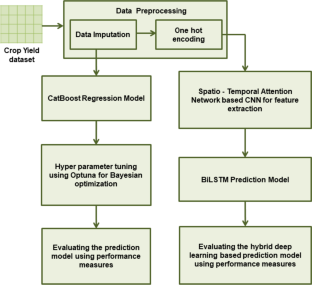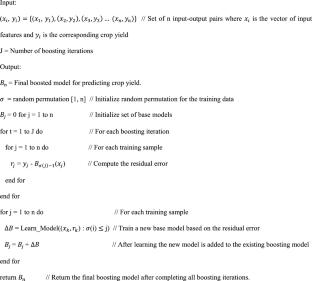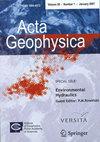Prediction of crop yield in India using machine learning and hybrid deep learning models
Abstract
Crop yield prediction is one of the burgeoning research areas in the agriculture domain. The crop yield forecasting models are developed to enhance productivity with improved decision-making strategies. The highly efficient crop yield forecasting model assists farmers in determining when, what and how much to plant on their cultivable land. The main objective of the proposed research work is to build a high efficacious crop yield prediction model based on the data available for the period of 21 years from 1997 to 2017 using machine learning and hybrid deep learning approaches. Two prediction models have been proposed in this research work to predict the crop yield accurately. The first model is a machine learning-based model which uses the CatBoost regression model and its hyperparameters are tuned which improves the performance of the yield prediction using the Optuna framework. The second model is the hybrid deep learning model which uses spatio-temporal attention-based convolutional neural network (STACNN) for extracting the features and the bidirectional long short-term memory (BiLSTM) model for predicting the crop yield effectively. The proposed models are evaluated using the error metrics and compared with the latest contemporary models. From the evaluation results, it is shown that the proposed models significantly outperform all other existing models and CatBoost regression model slightly performs better than the STACNN-BiLSTM model, with the R-squared value of 0.99.



 求助内容:
求助内容: 应助结果提醒方式:
应助结果提醒方式:


